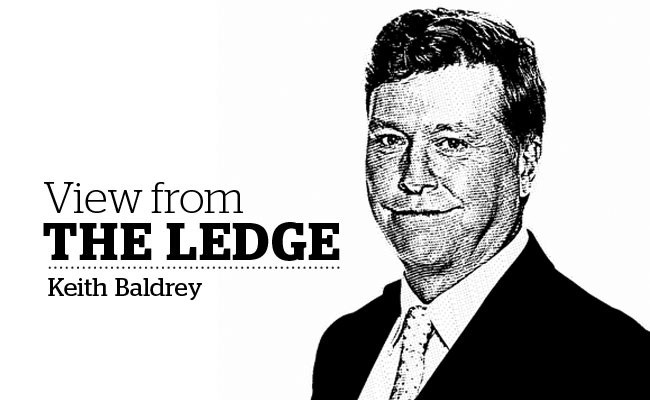There appears to be some increasing chatter out there that somehow, the so-called “youth vote” will decide the outcome of the looming federal election and turf Stephen Harper from the Prime Minister’s Office.
Sorry, I’m not buying that.
While the October election outcome remains very much an open question, there is little evidence to support the theory that younger voters will dominate older ones and stampede the Conservatives from office. In fact, there is evidence to support the exact opposite thesis.
Tacked to the board beside my computer is a neat little bar graph chart that shows the voting patterns of people of various ages from the 2013 B.C. election. It speaks volumes.
For example, there were about 740,000 registered voters under the age of 35 in 2013. That compares to almost 1.3 million registered voters who were older than 54 (another 1.15 million were aged between 35 and 54).
So, on sheer volume, the aging Baby Boomer generation dominates voting (as it dominates so many other things, from health care to real estate).
But the more revealing statistic in this chart — it was produced by Elections B.C., by the way, and is available on its website — is the percentage of people who actually vote.
For those aged 35 and younger, the voter turnout was an appalling low 42 per cent in the 2013 election (it was even lower in the 2011 federal election). For those over the age of 54, the turnout was a much more impressive level of 68 per cent.
Nevertheless, youth activist Brigette DePape (she was the parliamentary page who held up the “Stop Harper” sign in the House of Commons a ways back) is trying to kick start a campaign aimed at lighting a fire under young people, urging them to vote in a bid to oust Harper from office.
DePape is targeting strategic ridings where the Conservatives are potentially most vulnerable (i.e. where they won seats by less than a thousand votes or so).
I wish her well in increasing the turnout at the ballot box among younger voters, but there is a flaw in the argument that a big jump in the youth vote is automatically bad news for the Conservatives.
Simply not voting for a Conservative candidate still requires a young, new voter to cast a ballot for another party’s candidate. And that is where things can get interesting.
It strikes me that young voters are not a monolithic voting bloc, assigned to one particular political party in much greater numbers than any other.
For example, a number of surveys show concerns over climate change are much more of a priority issue for young adults than older ones, which in turn may suggest the Green Party would be the biggest benefactor from a big uptick in the youth vote.
But surely a youthful Justin Trudeau of the Liberal Party is an obvious attraction for young voters. And the NDP’s Thomas Mulcair got a rock-star kind of reception from a youthful crowd on a recent visit to Vancouver.
So it’s easy to see that a surge of, say, 1,000 new young voters in a riding would cast their ballots in all directions (even the Conservatives have some support among young people), thus cancelling out much of any supposed advantage for any party.
In fact, if the vote splits three ways among young voters (as it may very well do in a number of close ridings) it would ironically be Conservative incumbent MPs who would benefit the most. Their enemies’ vote totals may increase, but not by enough to be defeated, since any resurgent youth vote may be diluted across the board.
The next federal election outcome will be decided by a number of factors: how the economy is performing, whether Trudeau or Mulcair can be trusted as the country’s leader, whether enough of the electorate is tired with Harper or perhaps even if the fallout of the trial of Senator Mike Duffy convinces enough voters to wash their hands of the Conservatives.
But as much as I’d like to see a huge resurgence in the number of young people actually casting ballots, the chances of them proving to be a pivotal factor in determining the next prime minister are not good.
Still, I hope DePape scores some kind of success. Voter turnout needs to increase to keep a democracy healthy, and what better place to start than with first-time voters?
Keith Baldrey is chief political reporter for Global BC. He cn be reached via email at [email protected].
What are your thoughts? Send us a letter via email by clicking here or post a comment below.



